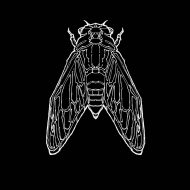Mishima’s literary style, as he used simple words and relatively short sentences, is blatantly honest. In the first few chapters of Confessions of a mask, he exposed his sexual desires towards men, his fascination about death since childhood, and his own shame to the readers in a calm but painfully honest way, although here painful refers to the feeling of the readers rather than the narrator in the book. He wrote about himself in a calm but aloof way as if he’s observing himself, but this honesty forced the readers to examine themselves, which created a certain intimacy. However, as readers, this intimacy that was easily gained or offered could feel like an intrusion of Mishima as a person. This aloofness can be exemplified by this passage in the book in which he describes his own body. “It was another case of the ugly duckling who believed he would become a swan, except that this time that heroic fairy tale was to have an exactly reverse outcome. (p.83)” Then, later on, he describes his feeling of uneasiness, “It was more than uneasiness: it was a sort of masochistic conviction, a conviction as firm as though founded on divine revelation, a conviction that made me tell myself: ‘Never in this world can you resemble Omi. (p.83)” That was a moment of self-loathing. The way he described his own body was sarcastic, cruel, and he was being somehow analytical about his personal feelings. Even when he was emotional, he was calm and with logic.
Mishima’s style is also a combination of beauty and ugliness or violence. He utilized elegant and poetic words to celebrate romance, but the romance that was celebrated is involved with death and destruction. In chapter two he wrote about the picture of St. Sebastian: “The arrows have eaten into the tense, fragrant, youthful flesh and are about to consume his body from within with flames of supreme agony and ecstasy. But there is no flowing blood, nor yet the host of arrows seen in other pictures of St. Sebastian’s martyrdom. Instead, two lone arrows cast their tranquil and graceful shadows upon the smoothness of his skin, like the shadows of a bough falling upon a marble airway.” The weird combination of elegance and violence are deeply rooted in Japanese culture, and also in Mishima’s literature. Although the confessions Mishima (wearing his mask) made are untraditional and unaccepted by mainstream Japanese society, which suggests an unconventional mind, Mishima is still influenced by society and developed a deep shame toward himself. His style is a combination of contradictory, even with the honest words mentioned above and the fictional nature of the “mask”. And reading that can become a unique experience for the reader.
